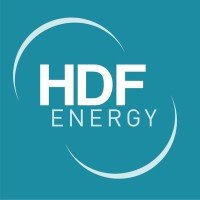Rosatom, Enagas and hydrogen-powered shipping dominate the market: Hydrogen Economy Review
Some investors consider Norway as a potential investment area for hydrogen due to the availability of hydropower, carbon capture, CCUS capability, strong shipping and offshore industries

The Russian government has been regularly discussing with other countries, particularly Germany, to explore hydrogen opportunity. Germany needs Russia’s natural gas as a bridge technology to transition to cleaner energy, though it also actively explores cooperation for hydrogen supply.
In line with the official stance on considering hydrogen as a future energy fuel, several Russian energy companies have recently renewed their support for exploring hydrogen energy opportunities. This week, Russia’ Rosatom and the EDF Group agreed to develop green hydrogen in Russia and Europe. Both companies also agreed to start decarbonisation initiatives in mobility and industrial sectors and to develop new CO2- neutral hydrogen technologies.
Last week, Rusatom Overseas (a subsidiary of Rosatom) joined hands with Air Liquide and the government of the Sakhalin region to conduct a feasibility study for exploring the potential of producing low carbon hydrogen in the Sakhalin region. Meanwhile, it also agreed with TMH – Energy Solutions (a subsidiary of Transmashholding JSC) for establishing a joint venture to work in the hydrogen fuel cell-powered transport sector. Russia Shchekinoazot and Haldor Topsoe also agreed to work on hydrogen, methanol, ammonia to reduce CO2 emissions.
Spain Enagas this week agreed with bp and Iberdrola to study the development of the first phase of developing the largest green hydrogen production project in the Valencian Community at the bp plant in Castellón. The €30 million investment project would see a building of a 20 MW electrolyser powered by a 40 MW photovoltaic plant start operating by 2023. In a separate development, Enagas also partnered with Disa Group to develop a green hydrogen hub in the Canary Islands. The project has been joined by twenty public and private organisations to promote renewable hydrogen. Among other initiatives, one of the projects is to decarbonise the local maritime sector, which is joined by the Port Authority of Santa Cruz de Tenerife, the Port Authority of Las Palmas, Astican, Boluda and Navantia.
Leading Japanese companies Kawasaki Heavy Industries, Yanmar Power Technology, Japan Engine Corporation agreed to form a consortium to develop the world’s first marine fuel engine for large ocean-going and coastal vessel. They will cooperate with common technical elements such as basic combustion analysis, materials, seal technology development, and compliance with ship classification rules. Each company aims to put the marine fuel engine into the market around 2025.
RIX Industries has announced today its mobile hydrogen generation system to enable hydrogen generation onboard and on-demand through its M2H2-Series scalable family of Methanol-to-Hydrogen Power Systems for shipboard.
Zero Emission Industries™ (ZEI) is awarded a $2 million grant by the California Energy Commission (CEC) to design, build and test a first-of-its-kind hydrogen fuel cell-powered small-fast harbour craft. ZEI’s also said that the construction works on its Water-Go-Round ferry (now called the Sea Change), the first commercial hydrogen fuel cell vessel in the US, is now completed and will start sea trials this year.
Meanwhile, France’ Fountaine Pajot has become the first major shipyard to integrate hydrogen as an energy solution onboard its boats with EODev’s REXH2®, under the project Odyssea 2024. Early this month, another French project, Flagships, announced to deploy the world’s first hydrogen-powered commercial cargo transport vessel, plying the river Seine in Paris this year. The ship would be owned by French inland shipowner Compagnie Fluvial de Transport (CFT), a subsidiary of the Sogestran Group.
This week, H2 Bulletin tracks dozens of key developments, including cooperation on fuel cell vehicles, insurer’s concerns about the emerging hydrogen industry, raising of private funds, new hydrogen refuelling stations, hydrogen production projects, high-level meeting to develop fuel cell technology in Africa using Japanese technology and Latin American countries accelerating their efforts for hydrogen programs.
Several alliances have also been established, including Renault with Iberdrola, H2IT reaching 70 strong members, Repsol becoming a founding member of the Spanish Hydrogen Association, SPIE joined Bavarian Hydrogen Alliance, and Advent Technologies Holdings has joined the Fuel Cell and Hydrogen Energy Association (FCHEA).
This week around 100 hydrogen-related news has been added to the H2Bulletin Hydrogen Economy Platform. Join our H2 Intelligence Platform today and start making informed decisions.
